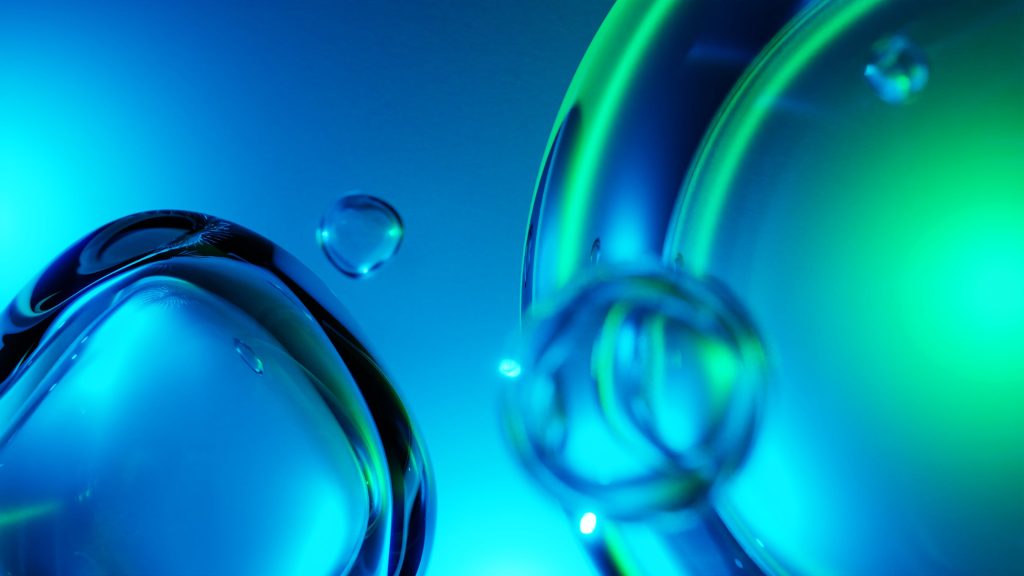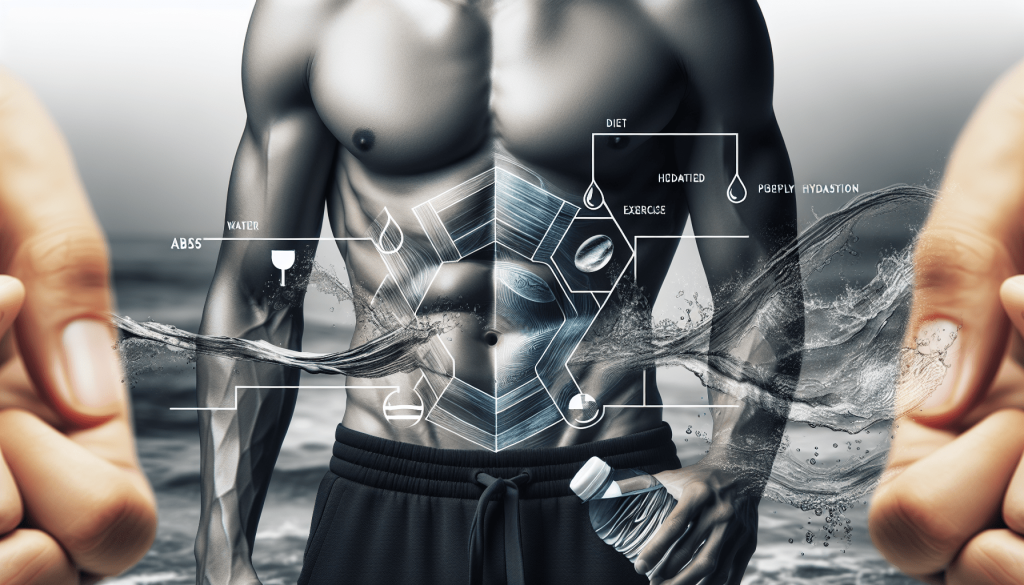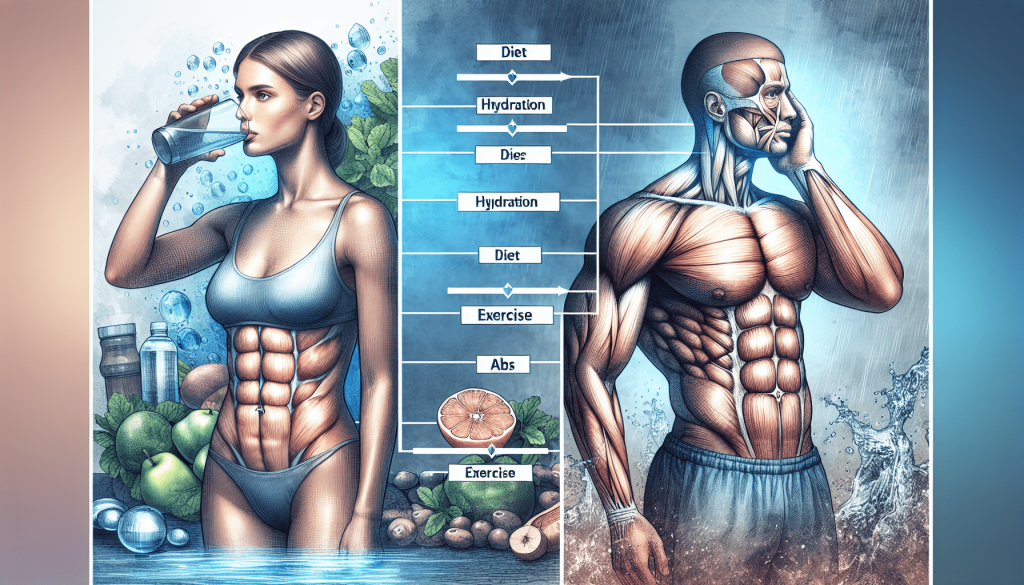Are you tirelessly working towards sculpting your six-pack abs, but noticing little progress despite your efforts? Well, you may be surprised to learn that water retention could be playing a significant role in hindering the appearance of your abs. While water retention might initially seem like a harmless condition, it can actually mask the definition and tone you’ve been striving to achieve. In this article, we will explore the connection between water retention and your abdominal muscles, shedding light on why your efforts may not be yielding the desired results. So, let’s dive in and understand how water retention affects the appearance of your abs, and discover ways to combat this challenge effectively.

Understanding Water Retention
Water retention is a common condition characterized by excess fluid accumulation in the tissues of the body. Also known as edema, this condition can cause discomfort and bloating. Understanding why water retention occurs and how it affects the body, especially the appearance of your abdominal muscles, is crucial for maintaining a healthy and defined physique.
The Relationship Between Water Retention and Abs
You may be wondering how water retention affects the appearance of your abs. Well, the presence of excess fluid in the body can have a significant impact on the definition and visibility of your abdominal muscles. To truly comprehend this relationship, it is essential to understand the role that water plays in defining your abs.
1. Definition of Water Retention
Water retention, or edema, refers to the abnormal accumulation of fluid within the body’s tissues. It occurs when there is an imbalance in the fluid levels, with the body retaining more water than it eliminates. This can lead to swelling and discomfort, particularly in the extremities. Identifying the symptoms and signs of water retention is crucial for managing this condition effectively.
2. Causes of Water Retention
Several factors can contribute to water retention. These include dietary factors, hormonal imbalances, leading a sedentary lifestyle, and certain medications. Understanding these causes can help you take preventive measures and manage water retention effectively.

3. Effects of Water Retention on the Body
Water retention can have various effects on the body, ranging from mild discomfort to more severe complications. Excess fluid retention can result in weight gain, swelling in the extremities, increased blood pressure, and feelings of discomfort and bloating. These effects can impact not only your physical well-being but also your self-confidence.
4. How Water Retention Affects Abdominal Appearance
When it comes to your abdominal muscles, water retention can directly impact their appearance. Excess fluid can mask the muscle definition, making your abs less visible. As a result, even if you have well-developed abs, they may not be as noticeable due to the layer of fluid that covers them.

5. The Role of Water in Defining Ab Muscles
Water plays a crucial role in defining your abdominal muscles. Hydration is key to optimizing muscle function and promoting overall health. When you are well-hydrated, your muscles are able to contract effectively, helping to enhance their appearance. On the other hand, dehydration can lead to muscle cramps, fatigue, and a less defined look.
Tips for Reducing Water Retention
If you are experiencing water retention and are concerned about its impact on your abdominal appearance, there are several tips you can follow to reduce this condition:
Increase water intake
Staying well-hydrated is crucial for managing water retention. Aim to drink an adequate amount of water each day to ensure your body is properly hydrated.
Reduce sodium consumption
High sodium intake can contribute to water retention. Limiting your sodium consumption by reducing processed foods and adding less salt to your meals can help manage water retention.
Incorporate diuretic foods
Certain foods, such as cucumber, watermelon, and celery, have diuretic properties that can help eliminate excess fluid from the body. Including these foods in your diet can aid in reducing water retention.
Regular exercise
Engaging in regular physical activity can help reduce water retention by improving circulation and promoting lymphatic drainage. Incorporate exercises that target the abdominal muscles to enhance their definition.
Avoid prolonged sitting or standing
Sitting or standing for extended periods can lead to fluid buildup in the extremities. Take regular breaks to stretch and move around, promoting healthy circulation and reducing water retention.

6. Increase Water Intake
Adequate hydration is essential for overall health and well-being, including managing water retention. Water is fundamental for maintaining proper bodily functions, including regulating body temperature, digestion, and transportation of nutrients and oxygen. Aim to drink at least 8 glasses (64 ounces) of water per day to ensure optimal hydration.
10. Avoid Prolonged Sitting or Standing
Prolonged periods of sitting or standing can contribute to the buildup of fluid in your body, leading to water retention. Lack of movement and circulation can cause fluid to pool in your extremities, resulting in swelling and discomfort. To reduce the risk of water retention, make a conscious effort to limit prolonged sitting or standing. Take regular breaks to stretch and move around, promoting healthy blood flow and fluid balance.
In conclusion, water retention can have a significant impact on the appearance of your abs. Understanding the causes, effects, and preventive measures of water retention is key to maintaining a defined and sculpted abdominal region. By following a healthy lifestyle, incorporating regular exercise, and staying properly hydrated, you can minimize water retention and achieve the six-pack abs you desire. Remember, a well-balanced approach that takes into account both water retention and muscle definition will help you on your journey to a stronger core and a healthier body.






